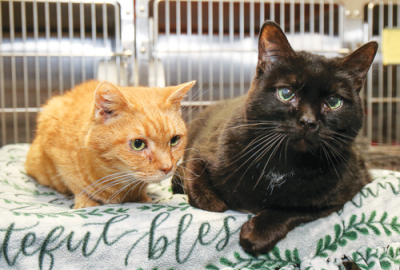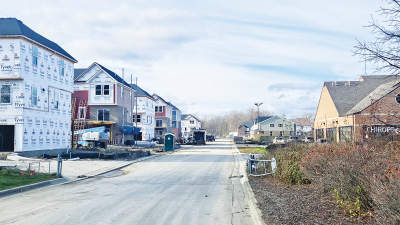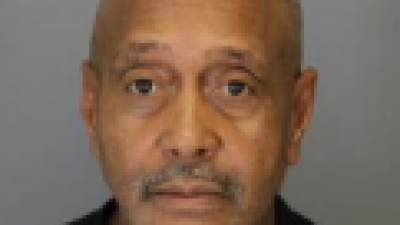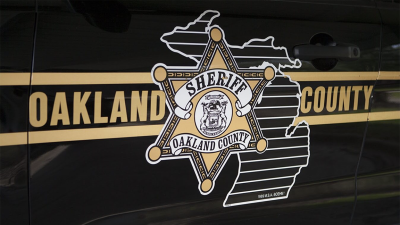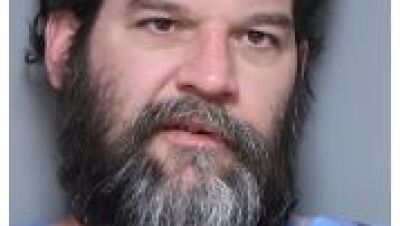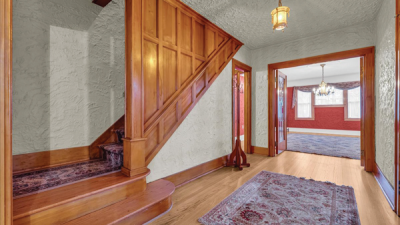FARMINGTON/FARMINGTON HILLS — More than a decade has passed since three members of the Farmington Hills City Council decided that it was time to start having “community conversations” about suicide.
Ken Massey, Randy Bruce and the late Nancy Bates helped start Farmington SAFE, Suicide Awareness for Everyone, in 2010.
After noticing a trend in suicides, the council members began to investigate, and they determined at least part of the problem.
“We wanted to be able to mainstream the dialogue, because the big difficulty was nobody could talk about it,” Massey said. “There’s a stigma involved with mental health; there’s a stigma involved with suicide discussions. We wanted to break that down. Given the three of us were on council, we felt that we had an opportunity to do that.”
Part of the council members’ investigation also led them to another conclusion.
“What we determined was that it wasn’t a lack of resources, it was a lack of being able to connect people with those resources before they needed them, because when you’re having suicidal ideations, it’s probably not the time to say, ‘Oh, by the way, (let me) make some phone calls and connect you with help.’ That’s a crisis point.”
The idea behind SAFE is to provide a platform for conversation, as well as resources, around the topic of suicide.
The nonprofit eventually came up with the motto, ‘Let’s Talk About It.’
“The focus is being able to take difficult topics — mental health, suicide prevention, depression and so forth — and actually have a conversation about it,” Massey said.
SAFE is a volunteer organization that covers Farmington and Farmington Hills.
Although events are primarily held at Farmington Hills City Hall, Massey said they take place at a number of venues.
“Our focus and the activities we do, we try to set up educational opportunities to have people come in,” Massey said. “It connects people with resources. We want to get them connected to the professionals that can help.”
Massey clarified what SAFE does not do.
“We don’t treat people,” he said. “We leave that to the professionals. We are here to change the dialogue within a community, to let people know that this is a community that cares.”
Massey has personal experience when it comes to understanding just how much the community does care.
The year after SAFE began, Massey’s stepson, Graham E. Smith, died by suicide at the age of 27.
When Massey met his wife, Katherine, Smith was 3 years old.
“It was May 9, 2011, and that’s a Monday,” Massey said. “That Sunday was Mother’s Day, and he had a great conversation with his mom. He was living out of state at the time. … Everything was ideal. He was being promoted at work; he was in management at his job, and everything was great. And then the next morning, I get a call in my office that they had found him and he was dead from an apparent suicide.”
Massey said that not seeing a suicide coming is “so prevalent.”
“Which is why … every piece of literature I hand out, or everything we give out, has warning signs on it,” he said.
Massey said that looking at that list, in hindsight, Smith was “demonstrating a number of them.”
Some of the signs to look out for include if individuals talk about “being down” or seem depressed, or if they have mood changes or refer to themselves as “worthless.”
Other signs include if people suddenly become risk-takers and do things to put themselves in danger; if they give things away, including items that mean the most to them; if there are behavioral changes; and if someone sleeps too much or is not sleeping at all.
“Those are all things that start you into the concern about whether or not they’re mentally (healthy),” Massey said.
If those signs are present, Massey suggests, “Ask that person, ‘Are you OK?’”
He believes that a “difficult conversation” may be required.
“You can’t be afraid of asking, ‘Are you thinking of injuring yourself?’ They’ll be honest with you,” Massey said. “They tend to say, ‘Yes, I am,’ or, ‘No, I’m not.’ If they say, ‘Yes, I am thinking about this,’ then the next question is, ‘Have you made a plan? Do you have access to a gun? Do you have access to a knife?’”
If the individual affirms those things, Massey said, “Now you’re into a situation where you need some help.”
In such a case, one option is to take the person to the emergency department of a local hospital. If the individual mentions weapons, his suggestion is to call the police and “have those things removed from that individual’s immediate area.”
Massey is a proponent of being compassionate and non-judgmental when dealing with an individual who may have suicidal thoughts.
One way of showing compassion is to try to seek out sources of help for that person.
“Let somebody know people care and they will try and help you,” Massey said. “A great place to do those things – Common Ground here in Oakland County is a wonderful resource for us. Even if you’re just down, a little bit depressed, you need somebody to talk to — call Common Ground; get in touch with them.”
To contact Common Ground, call (800) 231-1127 or visit com mongroundhelps.org.
Another option is to text “Hello” to 741741.
On its website, Common Ground states that, “There are no fees for most of our services. For guests with private insurance, there may be a co-pay or deductible.”
Jeff Kapuscinski is the chief external relations officer for Common Ground.
In an emergency, he suggests that individuals dial 988, which is a suicide and crisis “lifeline” that was “rolled out nationally last month.”
“Common Ground has been contracted by the state of Michigan to answer 988 calls that come from Michigan area codes,” Kapuscinski said. “So if someone is having a mental health crisis, including suicidal ideations, it’s very likely that Common Ground would be on the other end of that telephone conversation. … It was modeled after the 911 model, which is for emergencies. This is for emergencies of (a) mental health nature.”
Like Massey, Kapuscinski is also in favor of asking straightforward questions of individuals who may be considering suicide.
“It’s a conversation that I think can save a life,” Kapuscinski said.
Aside from individuals being able to speak with someone from Common Ground via phone, there are also physical locations in Pontiac and Royal Oak.
Kapuscinski also touted another possibility.
“Common Ground recently launched a virtual behavioral health urgent care program, and that’s another option for folks,” he said. “It’s a face-to-face video conference-type situation.”
According to recent stats, Kapuscinski said that Common Ground receives over 50,000 calls each year, which is “about a thousand a week.”
He thinks that the mental health issues that have come to light since the onset of the COVID-19 pandemic have made it more “acceptable” to seek out assistance.
“Not only societally, but also, I think, to individuals to reach out for that type of help because they realize they’re not alone, and it’s OK to ask for that help,” Kapuscinski said.
Massey echoed that sentiment.
“We care about people,” he said. “People undergoing mental health challenges often feel isolated — they feel like they’re the only ones. People are not alone. The community cares, and there are resources available to you, many times at low or reduced cost, or free of charge in some cases.”
Massey said that suicide is the third leading cause of death of individuals between age 15 and 20, and that “we lose 50,000 people to suicides every year.”
However, on the bright side, Massey said that there are at least a half-dozen stories of SAFE helping to save a life since the nonprofit launched in 2010.
“It makes me feel great,” he said. “When I think about (those stories), they almost give me a chill. … That’s why we do this.”
As for what he and his wife have gone through, Massey said that losing a loved one to suicide is a “club nobody ever wanted to join.”
“It’s pain that you can’t fix,” he said. “It’s one of those situations that you can’t even conceive of, it hurts so bad. All of the logic doesn’t explain it away. You’re left with a question about why that will never be able to be answered.”
Massey is motivated to get others the kind of help that can save their lives.
“Mental health is treatable, and if you get treated, that doesn’t mean you even have to be on medications, therapy or anything, forever,” he said. “You can get treated, work through something, and be done with it within a period of time. It’s not like a chronic disease. It can be a chronic disease, but it doesn’t have to be, so early identification of symptomatology and treatment is key, just like with any disease.”
A Farmington SAFE Mental Health Resource Fair is scheduled to take place 6:30-8:30 p.m. Oct. 12 at Farmington Hills City Hall, located at 31555 W. 11 Mile Road.
Multiple organizations that assist with mental health are expected to be on hand.
“We want to give plenty of networking time for folks to visit resources with whom they wish to connect,” Massey stated via an email.
The Graham E. Smith Memorial Fund helps to fund Farmington SAFE.
To make a contribution, visit ges-memorial-fund.com.
To learn more about Farmington SAFE, visit farmingtonsafe.com, or visit the nonprofit’s Facebook page.
 Publication select ▼
Publication select ▼

